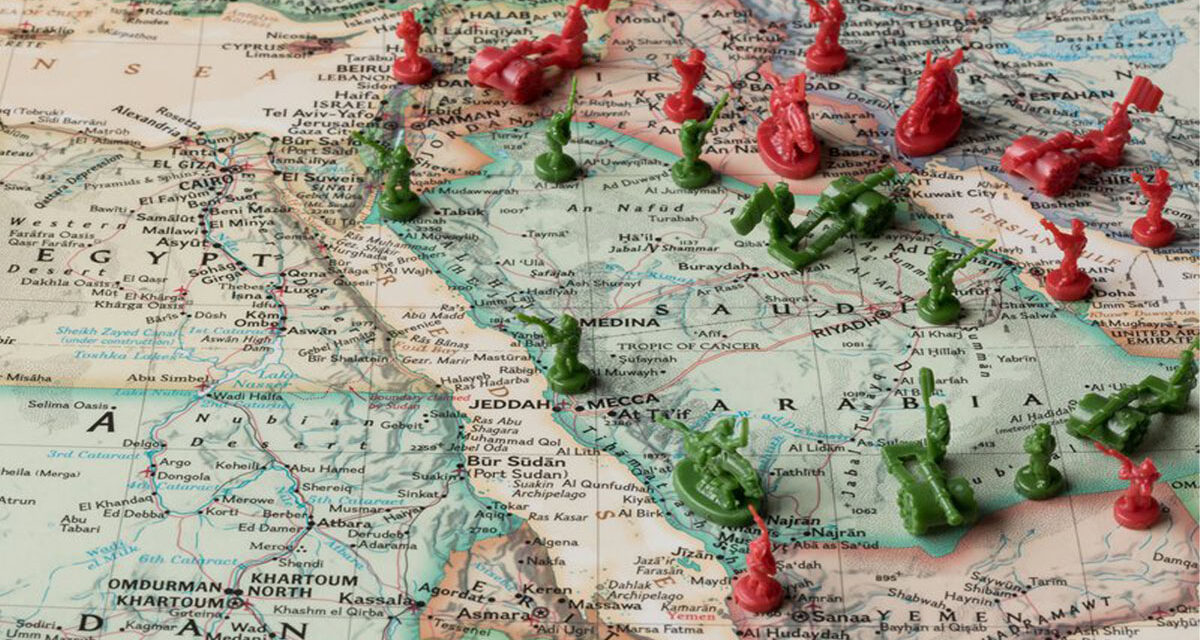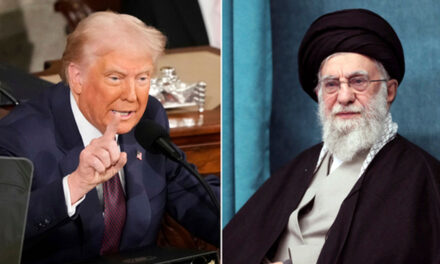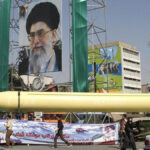
Is the long-failed war on terrorism reaching a conclusion?

Since the war on Islamic terrorism was never officially declared, there is no precise starting date. It evolved out of the event of the 1970s – most notably President Carter’s acquiesce to the fall of the Peacock Throne in Iran – when the notorious terrorist cleric, Ruhollah Musavi Khomeini, took over Iran from the Shah in 1979.
In one of the worst foreign policy blunders of modern times, Carter stood aside as the authoritarian Shah – allied to the United States – was replaced by a far more brutal authoritarian — who was the avid mortal enemy of the United States, Israel and the entire western world.
That was the launch for the decades of hostage takings, bombings, ISIS, proxy wars and the general spread of state-sponsored terrorism throughout the Middle East. Today, virtually all Islamic terrorism is an organic system with Iran at the head – and surrogates in Palestinian territories, in Lebanon, in Yemen, in Syria, in Afghanistan and other regions.
Since the 1980s, Israel, the United States and Western allies have played a tit-for-tat war of attrition with the terrorist network. When the network exceeded accepted levels of terrorism — the attack on the USS Cole in 2000 … the military barracks bombing in 1983 … the Lockerbie plane bombing … the Olympics bombing … the barbaric actions of ISIS … the downing of the Trade Towers … and others … America would treat it like a never-ending game of Whack-A-Mole.
The brutal attack on Israel on October 7, 2023, appears to have changed the old tit-for-tat strategy. Israel formally declared war on Hamas in the Gaza Strip. This was no measured response, but a determined effort to wipe Hamas out of existence.
The belief that Israel was too weak to engage in more than one front, the Iranian terrorist network went into action with attacks on the Jewish state from Hezbollah in Lebanon, Houthis in Yemen and even Iran, itself.
The old guard Neville Chamberlains in Washington and Europe pleaded with Israel to limit its response – to enter into an immediate unilateral ceasefire. That is not what happened.
Having effectively destroyed Hamas as a military and political force in Gaza, Israel turned its attention to Hezbollah – shocking the world with its intelligence and military prowess. It reestablished the reputation of Massad – Israel’s security force – as the most formidable in the world. They killed the top Hamas leader in the most secure facility in Tehran as he was attending the inauguration of the new president of Iran. His predecessor was killed in a plane crash, deemed to be an accident. (One must wonder.)
Israel killed the longtime head of Hezbollah – also responsible for hundreds of American deaths – with an attack on a fortified structure in the heart of Beirut. Collaterally killing another major Hamas leader and scores of top Hezbollah officials. This in the wake of targeted attacks on individual terrorist leaders.
In one of the most creative and ingenious attacks, Israel orchestrated an unprecedented series of pager and walkie-talkie explosions – killing scores of Hezbollah operatives … injuring untold more … and essentially destroying the utility of field operation communications.
It was not a one-off operation, but the staging event for a broader and remarkably successful assault on Hezbollah – kicking to the curb all the earlier assessments of Israel’s limited military abilities and Hezbollah’s relative strengths.
The success of Israel’s most recent operations has brought about a re-assessment of the Jewish state’s military potential. Ali Vaez, director of the Iran Project International Crisis Group, Richard Haas, president emeritus of the Council on Foreign Relations and a number of retired generals now say that it is Iran that lacks the ability to stave off an attack from Israel.
In fact, many military and foreign policy experts say that this is the moment for Israel to strike Iran – not in a measured tit-for-tat approach, but in a serious effort to undermine the regime in Tehran and to materially destroy Iran’s military and terrorist capabilities.
They say that Israel has four potential targets for retribution – military bases, nuclear sites, oil facilities and the regime itself in Tehran. Some suggest all four should be hit. It is noteworthy that for the first time, regime change in Iran is on the table for discussion.
So, where does the United States fit into all this? The Biden administration seems to be stuck in the past. Word out of Washington is that the President is taking a business-as-usual, tit-for-tat response. His only definitive statement is answering “no” when asked if Israel should bomb Iran’s nuclear facilities.
That public response, in itself, was boneheaded. He should not be telegraphing any opinion regarding the Israeli response for two reasons. It gives encouragement to Israel’s enemies and Biden looks like a weak old fool when his opinion is disregarded – as they have in the past.
Perhaps the most important statement comes from Israeli Prime Minister Netanyahu when he said, “enough is enough.” He was saying that the measured responses of the past – that have only encouraged and continued the attacks on Israel — are over.
By the time you read this commentary, the Israeli response may have already started. If not, it is only days off. Minimally, I think Israel should go after the nuclear sites to stop Iran from getting nuclear weapons. But regime change will be on the table at some point.
If Israel is totally successful, they will occupy Gaza in cooperation with regional partners until a stable and friendly democratically elected government takes over. They will push Hezbollah away from Israel’s northern border and diminish its military capability. The Houthi problem in Yemen will be handled by the coalition of half dozen Arab nations led by Saudi Arabia.
At some point in the future, Israel will lead a multi-nation effort to force a regime change in Tehran. It is likely to be a combination of external pressure, military intervention and domestic uprising. Unless there is regime change in Iran, there will be no peace in the Middle East. That is a longer term and much more complex issue which will be covered in a future commentary.
So, there ‘tis.



























Does it matter if the poor below or above the poverty line are registered to vote. If they are registered…
Actually, you are slightly off. SNAP benefits last from one month to three years, it's no forever Joe. I think…
"You’re ugly and your mother dresses you funny." Stop acting like a child. "We conservatives are not the heartless bas#$ds…
Bill, most of this fact-checks as lies and, frankly, being Frank, I can say the danger, being Danger, is that…
Got proof Joe. Because your opinions of me seem unfounded and full of bullshit. I was a in Senior Product…